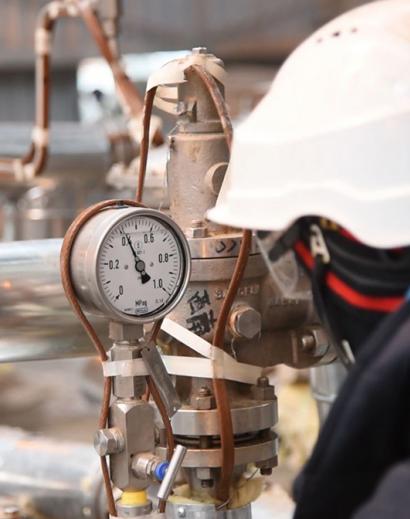Olefins Purification
Olefins are usually produced in steam crackers but can also be produced in refineries for instance, through cracking processes (FCC, coker…), or on purpose olefins units.

Axens Offer
In the Oil&Gas industry, a wider variety of feedstock has been introduced over the last decade. This diversity introduces a new challenge, as the operator has to cope with a large panel of impurities and constraints that may affect their day-to-day operation.
Additionnaly, modern polymerization technologies need ever higher purity monomers to protect metallocene catalysts. and the increasingly more stringent product specifications and environmental restrictions push the petrochemical industry to use highly performant products such as adsorbents and catalysts for olefins purification.
Three different and complementary options are available to purify olefinic streams:
- Regenerable adsorbents, designed for selective removal of polar molecules such as water, mercaptans, COS or oxygenates.
- Sacrificial material based on chemisorption, suitable for removal of contaminants such as Chlorine, Arsine, Phosphine, Mercury, Sulfur or metals, to very low concentrations (ppb level).
- Hydrogenation catalysts to remove diolefins and remaining hydrocarbon impurities, while maximizing the olefins production through improved selectivity technologies.
Axens, as technology, adsorbents and catalyst provider, is able to propose an integrated solution, adapted for each case, combining the different steps of purification and optimizing the interactions between them. As a result, ultra-low contaminants content product can be achieved, while complying with the highest standards of energy efficiency, sustainability and operation safety.
The catalysts used in the ethylene polymerization process to produce polyethylene are very sensitive to contaminants in the feed - including H2O, H2S, RSH, light RSH, NH3, CO2, COS, CS2, AsH3 and PH3. The presence of trace contaminants in the ethylene can cause issues such as deactivation of these high activity catalysts resulting in off-spec product and/or low value product. Hence the selection of the optimum adsorbent combination is determining to ensure continuous reliable high value polyethylene production.
Steam crackers lie at the heart of the world’s olefins production. Ultra high-purity olefin building blocks are needed to respond to the quality requirements for polymerization reactions. Polymerization reactions require feedstocks of high purity; Axens provides adsorbents to achieve the high specifications necessary for olefin monomers (e.g. ethylene) and olefin co-monomers (e.g. 1-butene or 1-hexene), especially for drying, oxygenates and sulfur removal.
The catalysts used in the propylene polymerization process to produce polypropylene are very sensitive to contaminants in the feed - including H2O, MeOH, RSH, RSSR, COS, AsH3 and PH3. The presence of trace contaminants in the propylene can cause issues such as deactivation of these high activity catalysts resulting in off-spec product and/or low value product. Hence the selection of the optimum adsorbent combination is determining to ensure continuous reliable high value polypropylene production.
Contact Us
Please fill in the form below to get in touch with us